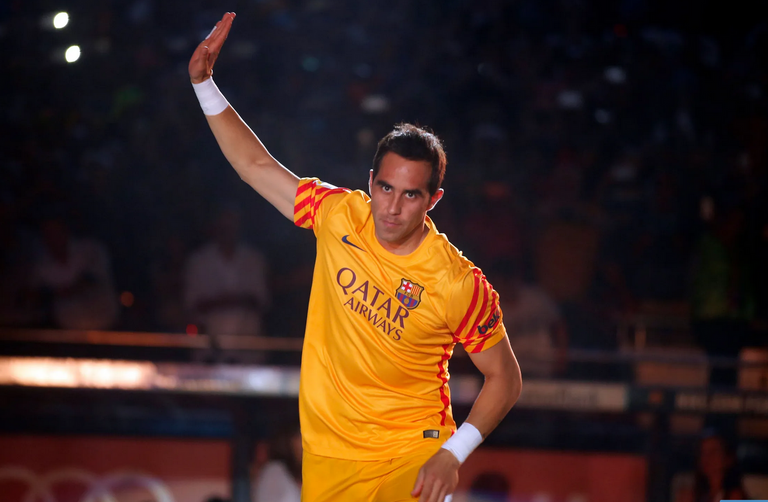
No hace mucho, antes del inicio de la Copa América a la postre ganada por Argentina en la recordada final contra Brasil, tuve la oportunidad de ver por TV el partido de las eliminatorias sudamericanas entre Argentina y Chile.
Y ahí tuve la oportunidad de ver a un viejo conocido en el arco de Chile, a Claudio Bravo. Con algunos años a cuestas, barba incluída, pero siempre mostrando la misma señorial personalidad.
Lo mejor de él lo recuerdo en el Barcelona tal vez porque los partidos del equipo catalán se retransmitían a todo el mundo. En ese momento vivía en Italia y poco recuerdo de su paso por la Real Sociedad, equipo en el que militó por ocho temporadas, convirtiéndose en el segundo extranjero con mayor cantidad de presencias en el club vasco. Y una imbatibilidad de más de 450 minutos en el arco.
Pero lo mejor (o al menos que yo recuerde) lo dejó en el Barsa. Con 32 años cumplidos estableció un récord impresionante atribuyéndose el trofeo Zamora al mejor arquero de La Liga: 750 minutos con la valla invicta al inicio del campeonato superando a otro ídolo del club catalán: Víctor Valdés Aquel que sufrió una lesión tan grave como absurda al salir a recoger un centro. Lo tengo grabado en mi memoria como si fuera hoy. Una lesión que prácticamente puso fin a su carrera como arquero titular y de primer nivel.
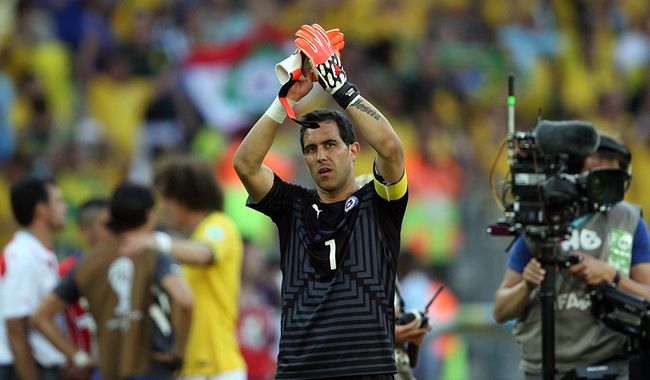
Pero eso no es todo, en esa temporada durante 23 partidos a Bravo no le convirtieron goles. Mascherano, Piqué, Jordi Alba, Messi, Busquets serían algunos de sus compañeros.
Sin embargo ese Barcelona, dirigido por un semi-desconocido Luis Enrique, contrataría al alemán Marc-André ter Stegen, actual guardameta y en ese entonces muy joven, para disputar los partidos de Champions League.
Y de esa manera se dividieron la titularidad: Bravo atajó toda La Liga siendo suplente ter Stegen, y éste último tuvo el privilegio de disputar y alzar la Orejona sin que Bravo tuviera la oportunidad de jugar ni siquiera un partido.
Al chileno el título de La Liga, al alemán la Champions League.
No conforme con lo que lo que le deparaba la conducción técnica prefirió alejarse un año más tarde del Barcelona con los títulos como la Supercopa de España 2015, el Mundial de Clubes, La Liga, la Copa del Rey y la Supercopa de Europa 2015.
Pasa al Manchester City que había contratado a Pep Guardiola como DT pero no logra tener una actuación destacada ya que la defensa recién comenzaba a ensamblarse. Y por este motivo es reemplazado por el brasileño Ederson y de nuevo a remar, en este caso todavía en inferioridad de condiciones, ya que mientras Guardiola ponía como titular a Ederson en Premier y Champios a Bravo solo le cabía actuar en la Copa de la Liga inglesa y en la FACup, torneos ambos de menor interés que los anteriores.
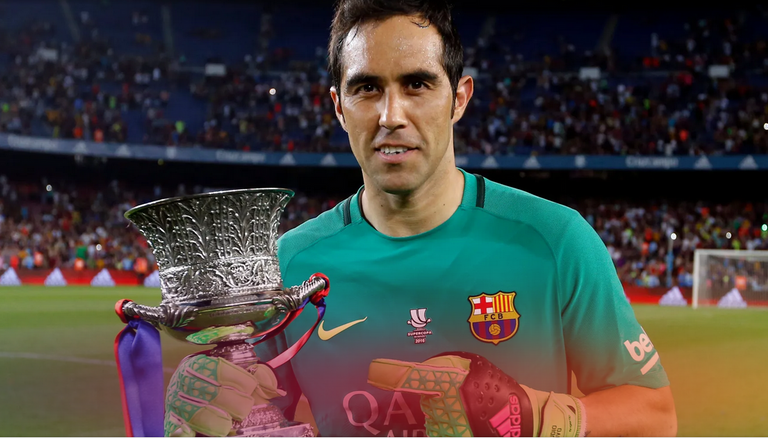
Sigue aún un par de temporadas más hasta que en el 2020 es transferido al Real Betis con 37 años. Equipo en el que aún juega.
Pero después de toda esta brillante trayectoria me quedaron grabadas en la memoria un par de jugadas en las eliminatorias con Argentina partido jugado en el estadio Madres de Santiago del Estero. Dos tiros libre en la posición ideal de Messi. Ejecutados con perfección. Al angulo. Bravo ni siquiera vuela. Estaba ahí, parado donde iba el balón y con un simple manotazo mandó la pelota al corner. Semplicidad y sentidos de la ubicación absolutos. El restante tiro libre fue idéntico al primero.
Creo que después de compartir tantos partidos juntos Messi se dió cuenta que en frente tenía un gran arquero. El mismo que en el año 2015 fue elegido por la Federación Internacional de Historia y Estadística de Fútbol (IFFHS) como el tercer nejor portero del mundo detrás de Manuel Neuer y Gianluigi Buffon.

Not long ago, before the start of the Copa America, won by Argentina in the memorable final against Brazil, I had the opportunity to watch on TV the South American qualifying match between Argentina and Chile.
And there I had the opportunity to see an old acquaintance in the goal of Chile, Claudio Bravo. With some years behind him, beard included, but always showing the same stately personality.
I remember his best moments with Barcelona, perhaps because the Catalan team's matches were broadcasted all over the world. At that time he was living in Italy and I have little memory of his time at Real Sociedad, where he played for eight seasons, becoming the second foreigner with the highest number of appearances at the Basque club. And an unbeaten record of more than 450 minutes in goal.
But the best (or at least that I remember) was at Barsa. At the age of 32 he set an impressive record, winning the Zamora trophy for the best goalkeeper in La Liga: 750 minutes with an unbeaten record at the beginning of the championship, surpassing another idol of the Catalan club: Víctor Valdés, who suffered an injury as serious as absurd when he went out to collect a cross. I have it engraved in my memory as if it were today. An injury that practically put an end to his career as a first-choice goalkeeper.
But that's not all, in that season Bravo did not score any goals in 23 matches. Mascherano, Piqué, Jordi Alba, Messi, Busquets would be some of his teammates.
However, that Barcelona, led by a semi-unknown Luis Enrique, would hire the German Marc-André ter Stegen, current goalkeeper and at that time very young, to play in the Champions League matches.
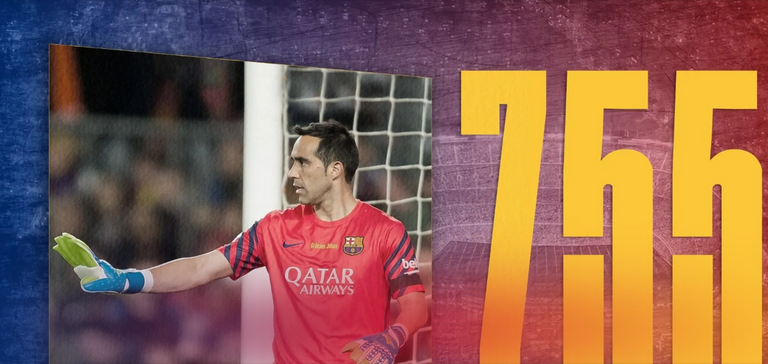
And so they split the starting lineup: Bravo saved all of La Liga while ter Stegen was the substitute, and the latter had the privilege of playing and winning the Orejona without Bravo having the opportunity to play even one game.
The Chilean won the La Liga title, the German the Champions League.
Not satisfied with what the technical management had in store for him, he preferred to leave Barcelona a year later with titles such as the 2015 Spanish Super Cup, the Club World Cup, La Liga, the Copa del Rey and the 2015 European Super Cup.
He moved to Manchester City who had hired Pep Guardiola as DT but he did not manage to have an outstanding performance as the defense was just starting to assemble. And for this reason he was replaced by the Brazilian Ederson and again to row, in this case still in inferior conditions, because while Guardiola put Ederson as a starter in Premier and Champios, Bravo could only act in the English League Cup and the FACup, both tournaments of less interest than the previous ones.
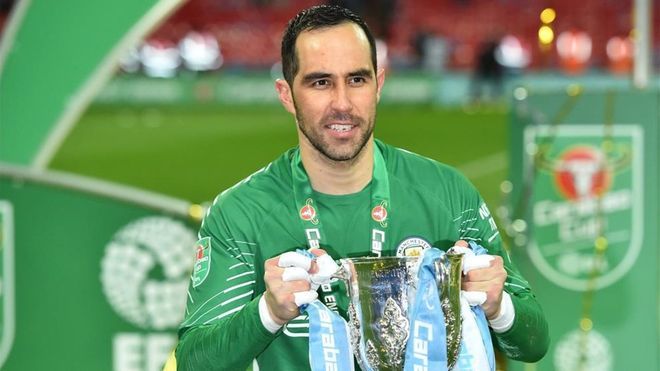
He continued for a couple of more seasons until 2020 when he was transferred to Real Betis at the age of 37. Team in which he still plays.
But after all this brilliant career, a couple of plays in the qualifiers with Argentina played at the Madres de Santiago del Estero stadium are engraved in my memory. Two free kicks in Messi's ideal position. Executed with perfection. To the corner. Bravo doesn't even fly. He was there, standing where the ball was going, and with a simple handball he sent the ball to the corner. Absolute sense of place and sense of location. The remaining free kick was identical to the first one.
I think that after sharing so many games together Messi realized that he had a great goalkeeper in front of him. The same one who in 2015 was elected by the International Federation of Football History and Statistics (IFFHS) as the third best goalkeeper in the world behind Manuel Neuer and Gianluigi Buffon.
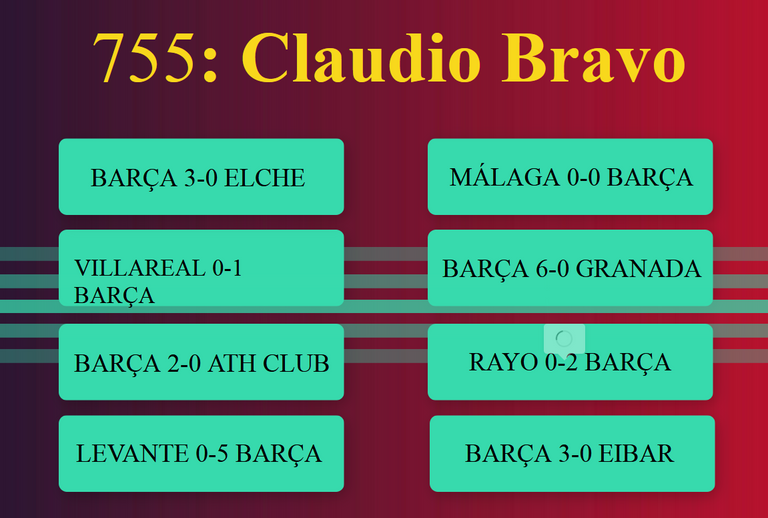


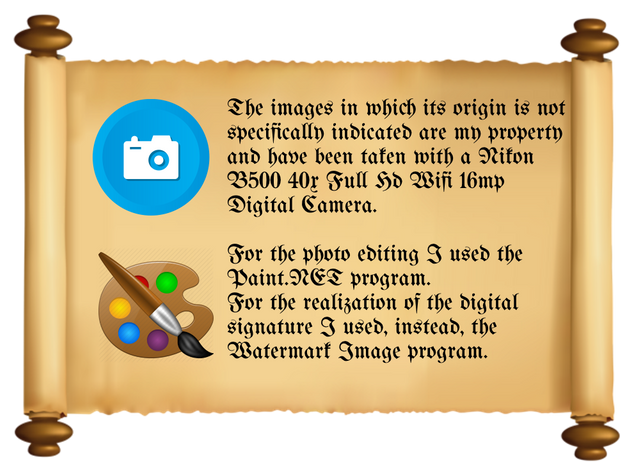
Gracias por leer. / Thank you for reading.
Los enlaces de mis sitios web / Links to my websites :
